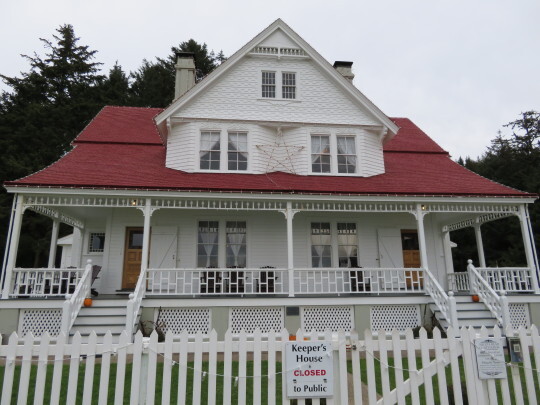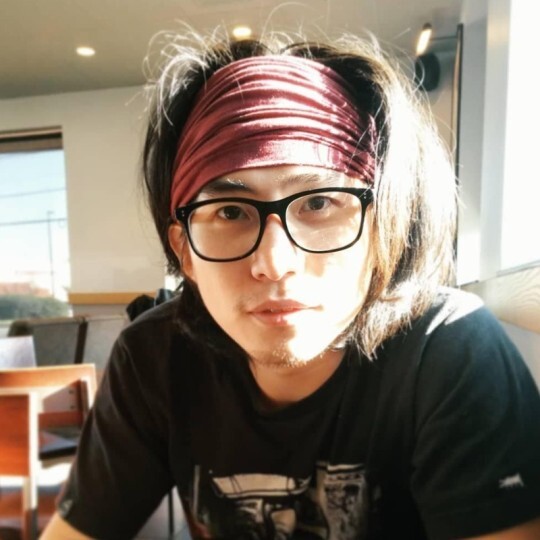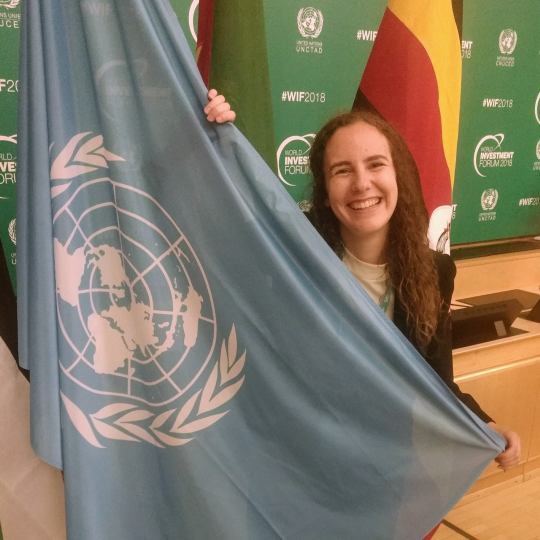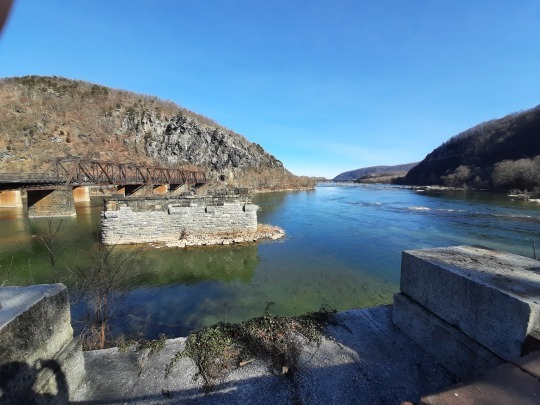Mihir Jaiswal's Blog, page 2
March 5, 2023
I Want a House

I want a house, a house that talks
Personality of its own, it always rocks
Two floors, three floors
Every day I open at least thirty doors
Plenty of chores
Comfortable for a million snores
I want a house, a house with two hats
Eight times, six times, sunshine each gets
Pointed roofs, steep roofs
I hear plenty snow and all of Rudolph’s hoofs
All of us are goofs
I grow old where, a fulfilling life’s proofs
I want a house, a house with stairs
One up, the other down, operate in pairs
Big backyard, Small frontyard
Rest there, relax where, life can be hard
Wildflowers on guard
Have time on hand, I am not a Picard
I want a house, a house that is old
It has a character, that is really bold
Shiny wood, hardwood
I can slide, when I am in that mood
Yup it’ll be good
Admire my house, admire you should
I want a house, a house that is a friend
It’ll be with me, till the very end
Books, with amazing hooks
A roomful of tall shelves, even in the nooks
A sliding ladder swoops
My house, my friend, we are two crooks
I want a house, a house that talks
I want a house, devoid of any locks
I want a house, a house that always rocks
I want a house, part of the best blocks
I want a house, a house that each knocks
I want a house, that attract many blokes
January 15, 2023
में जरूरत से ज्यादा फ्री हूं

में जरूरत से ज्यादा फ्री हूं, बस तुम्हारा इंतेज़ार है
में जरूरत से ज्यादा फ्री हूं, फुर्सत मेरा हथियार है
अड्डे पे खड़ा खड़ा जाने देता हुं चार बसे रोज
तुम्हारे इतिहास पे ध्यान जैसे भारत ऐक खोज
तुम्हारे हर बस्ते किताब की उम्र मुझे पता हे
कभी दो तो कभी बारह फीट से तुम्हे देखा हे
तुम्हारी उम्र के कितने अनुमान लगा चुका हुं
महिने हो गये ऐक बार बात करना चाहता हुं
हिम्मत आसमान को गई जब तुने मुझे देखा
पांच बसे जाने दी ओर देखी मेरे हाथकी रेखा
हवा का रुख बदल जाता अगर झरा हस लेती
फुर्सतका मैंने सबुत दिया तकदीर को दी चुनौती
मेरी बात का जवाब दिया जैसे मेंने सब पा लीया
आखिरमें डांटकर तुमने मेरा इझहार ठुकरा दिया
सालो के बादभी इंतेज़ार है में जरुरत से ज्यादा फ्री हुं
तुम कहीं दिखती नहीं और में जरुरत से ज्यादा फ्री हुं
December 26, 2022
હું કેવી વાર્તાઓ સંભળાવું

ઉનાળાનું વેકેશન પડવાના આરે, છે ગરમી અને બાફ
હું કેવી વાર્તાઓ સંભળાવું, હોય ખરતા તારાનો સાથ
ચાચા ચૌધરીનું દિમાગ ચાલે કંમ્પ્યુટરથી પણ ફાસ્ટ
હું કેવી વાર્તાઓ સંભળાવું, સાબુ કરે ઉઠક પટાક
કાદવ કીચડમાં કુદીને લેવી પહેલાં વરસાદની મજા
હું કેવી વાર્તાઓ સંભળાવું, પૂર લઈને આવે રજા
ચંપકવનના બોલતા જાનવરોની હતી અલૌકિક દુનિયા
હું કેવી વાર્તાઓ સંભળાવું, એ વનથી કેટલુંય શીખ્યા
શિયાળાની ગુલાબી ઠંડી, ગરમ પાણી અને લીલા શાક
હું કેવી વાર્તાઓ સંભળાવું, સંતાવવા જોઈએ ગરમ પોષાક
લાંબી વર્તા, ટૂંકી વાર્તા, લોકકથા કે પંચતંત્રની ગાથા
હું કેવી વાર્તાઓ સંભળાવું, હોય ભાઈ-બહેનના માંથા
December 24, 2022
ગુમાવવાનો આનંદ

કાલે કંઈક મેળવ્યું તો આજે કંઈક ગુમાવ્યું છે.
બારીમાંથી ડોકિયું કરીને જીવનને નિહાળ્યું છે.
ગુમાવવાનો દર્દ કે પછી મેળવવાનો આનંદ છે.
પરંતુ ગુમાવવામાં જ મેં ઘણું બધું મેળવ્યું છે.
એક પાવલી પડીને ઇર્ષ્યા લઈ ગઈ
બીજી પાવલીએ ગયો ગુસ્સો
ત્રીજી પાવલી હરિફાઇ લઇ ગઈ
રહી ગયો માનવતાનો જુસ્સો
મોટાની ઇર્ષ્યાં ગુમાવી મળી મને હૂંફ
નથી સરખાંની હરિફાઈ છે સાથનું સુખ
ગુસ્સો ત્યજ્યો નાના પર જતું રહ્યું દુ:ખ
ગુમાવ્યા પછી ત્રણેય મેળવી જીવનની ભુખ
December 23, 2022
That Night...

That night the moon was full and stars were twinkling
Absent was howling wolf, rustling leaves were mingling
Where were the shooting stars? Light breeze was flowing
That night I walked up to two romantic leaves, canoodling
That branch of the tree was swaying, not really cooperating
Was there a leave crying in a corner? Jealous or sulking
Brown leaves were crackling few, end of their lives waiting
Younger ones were careless with wind, together not resisting
That night showing me the life, that tree was proudly standing
The tree, the moon, the wind, the stars, all were influencing
The mind was free, the soul was detached, was I hallucinating?
That night the nature responded, when a poet was just strolling
November 7, 2022
Quantum Computing through a physicist’s eye: An Interview with Dr Shangjie Guo
This is a physicist’s interview. A physicist who is trying not to be a physicist for the good of the world. I challenged Dr Shangjie Guo to explain the complicated concepts burried within the field of quantum computing and he took on that challenge. The result is this interview. He is a PhD in quantum computing from the University of Maryland, College Park and a practitioner of qunatum computing. His knowledge about the software, hardware, theory, application, challenges, opportunities of quantum computing is profound. Find the excerpts from his interview before it becomes book in few months.

Mihir: The concept of qubit. A bit has only two states: 0and 1. A qubit has more than two states. By nature, a qubit is more powerfulthan bit. Is that true?
Shangjie: Remember, it also takes more to measure a qubitthan a bit. If you are talking about just one qubit, it is not that powerfulcompared to a probabilistic bit. If you flip a coin and you don’t look at it.Than it is a probabilistic bit and it does everything that one qubit does. Ifyou want to measure another probabilistic bit using flipping the coin, you willhave to measure the first and then flip the coin again. In other words, youflip the coin twice and measure twice. In quantum computing, because ofentanglement between qubits, you only have to measure it once – you only needone gate. Quantum computing advantage extends when you have multiple qubits.
Mihir: You talked about gates there. In classical computingwe have gates like AND, OR, NOT. In quantum computing, we have CNOTGate orHGate. Fundamentally, is the concept of gate similar in classical and quantumcomputing?
Shangjie: More or less, yes. For example, to add numbers in classical computing you have a routinethat consists of several gates, like AND, OR. To add numbers in quantumcomputing there is a routine with multiple quantum computing gates, like CNOT.Think of the complexity. Certain algorithms are faster because they have fewergate operations. It may not matter for many common algorithms right now becauseof increased computational power. Think about complex algorithms. If you can dothe same routines and operations in quantum computing using considerably lessgates, it may improve the speed and performance.
Mihir: Let’s pivot to the hardware. A limitation that we areapproaching in the classical computing is hardware. We can’t squeeze the sizeof chips anymore and we have to keep stacking them to achieve more power. Howdoes the quantum computing hardware differ in breaching that limitation?
Shangjie: Some of the hardware for quantum computing is sameas classical and some different. We have both superconducting qubit andsemiconducting qubit. Semiconducting qubit is very similar in that it issilicon based. Supercomputing qubit have supercomputing electrode. You have toput them in refrigerator for operation. There is another option of vacuum chamber.You try to trap some natural ions with magnets. You capture an ion.
Mihir: An each ion becomes one qubit?
Shangjie: I would say some of the electrons on those ionsbecome qubits. To be more specific, some of the energy levels of some of theelectrons are qubits.
Mihir: Can you really control how many qubits are going tobe in such a system?
Shangjie: Yes. So basically, you don’t care about the noisefrom the vibration of these atoms. The information is coded on the electrontransitions. You need to be more careful about the electron field. Going backto the question you can control the number of qubits depending on how manyatoms you are having in the system.
The trouble is if you have a many qubits than it creates anengineering problem. For example, there will be a crosstalk noise. If you lettwo qubits talk to each other they will affect the third one.
Mihir: My introduction to classical computing was throughpascal language and had a little exposure to assembly programming. Theclassical computing evolved big time to low level languages and high leveladvanced languages. Many of quantum programming is python based these days.Does that mean we skipped the equivalent of assembly programming and startedwith high level programming in quantum computing?
Shangjie: No, we have not. It is very basic programming.Even if we are using python base, we are coding gate by gate. That python isactually working for the control of the quantum state. The control is reallycomplicated. How do you control energy of an atom? How do you controltransition of electronic states? That’s the problem we are solving. You use electronicpulse. Those electronic pulses are complicated. If you are measuring a qubitfrom 0 to 1, than there are many physical states to measure. Python in quantumcomputing is actually working for that not for computing.
Mihir: You did your PhD in quantum computing. How many yearsdid you study quantum computing?
Shangjie: Six.
Mihir: Was there enough information then to study quantumcomputing for six years? Being a program, there were multiple people doing aPhD in quantum computing. Was there enough basis information available and opportunityfor multiple PhDs in the field?
Shangjie: Most of the quantum computing researchis about how we can actually have a quantum computer. So moving from theory toreality. Fundamentally, a PhD student work on one of the two problems: 1) Doyou want to build a quantum computer? Or 2) Do you assume that a quantumcomputer exists and want to build applications of it?
Mihir: When am I getting a quantum computer on my desktop?
Shangjie: Probably, gonna be a long time because there is noreason to get it to the desktop. One reason is a quantum computer is big andneeds a lot of power, so you might just want to rent it for certain amount oftime. Also, it is not meant for day to day things like streaming, surfing, orwriting. It doesn’t serve that purpose. It is meant to solve some hardproblems. I don’t think you will get a quantum personal computer in the foreseeablefuture. You will get it on cloud quite sooner. In fact, there is alreadysomething on the cloud. It is just not as good or useful.
Mihir: Can I really trust a quantum computer on cloud thatit is indeed a quantum computer and not a quantum simulator running onclassical computing?
Shangjie: This is an academic problem of verification. Youjust use another quantum computer on another cloud. You would want them to deliversame result or be similar enough. This problem is called quantum verification.It is again a big problem. It is a mathematical problem.
Mihir: Quantum mechanics and quantum chemistry have beenusing approximations to do quantum calculations for decades now. How do thecurrent quantum algorithms differ from them? Why can’t we use those samealgorithms in quantum computing?
Shangjie: Good question. There are approximations in quantumcomputing but there are fewer approximations. That’s why we are hoping that inquantum computing we can do large calculations more accurately.
Mihir: Is the key to success in quantum computing in futureis better hardware or better software?
Shangjie: Both. Because we don’t have efficient algorithmsand software, we don’t have motivation to build better hardware. For betterhardware, we need to find better algorithms that can use that. We need to makeprogress in both. However, my opinion. Finding a really useful quantumalgorithm is more important right now than building a better hardware.
Mihir: And my last question, what talent is going to definethe success of quantum computing in near future?
Shangjie: I actually think the bottleneck isproject managers. We need project managers that can identify, define and manageproblems for quantum computing. Everybody is working on their own stuff. Thequestion is how can we bring everyone together and solve quantum problems. Yes,we need project managers. IBM is building biggest quantum capabilities isbecause they are doing a good job of project management.
September 20, 2022
UN’s YPP Program: An Interview with its newest recruit, Alexandra Hoenscheid
Alexandra Hoenscheid after over a year of process including exam, application and interview cleared UN’s YPP program. She will soon be serving in her dream role at one of the UN locations. In this interview, she talks at length about her motivation, excitement, and practical tips to become a YPP recruit.

1) What is the UN YPP program?
Thank you very much Mihir for this opportunity! Please note that the views expressed here are entirely my own and do not represent or reflect the views of the United Nations or YPP.
The UN Young Professionals Programme (YPP) is a recruitment initiative for young professionals from underrepresented countries to begin their career with the UN! To be eligible, you need to be age 32 or younger, come from a country underrepresented in the UN, and hold at least a Bachelor’s degree. The list of eligible countries and the exam areas are updated every year. To be selected, you must pass a four-part exam process in one of their specialized exam areas, which can take up to 2 years! However, if you do manage to pass and receive a job offer, you’re able to receive unique benefits such as a continuing contract with the UN.
2) When did you first hear about it and were you attracted to it the first time you heard about it?
I actually first heard about this program when I was first graduating college back in 2016! I was very excited about the opportunity, but ended up choosing to begin a career in DC first instead. Although you’re eligible to apply just out of college, I recommend building up a few years of relevant experience first. During these years, the UN YPP program had always been a dream in the back of my mind, and I’m so happy it was able to work out.
3) What does excite you about this program?
This program had been a dream for many reasons! First, I had always wanted to work for the UN itself. The idea of collaborative diplomacy, where rather than representing the interests of one nation, I’m collaborating openly on solutions with all member nations, always drew me in. I have also increasingly gravitated towards building international understanding through communications in particular.
Second, this specific program presented a very unique opportunity. It’s essentially the only program that can allow you to begin a lasting career with the UN without a Master’s degree. Most importantly, it is also the only program that will provide you with a continuing contract as a young professional, as long as you satisfactorily complete your first 2-year contract. Even if you otherwise manage to obtain a UN job externally, typically these are temporary positions and it’s normally difficult to stay in the UN system.
4) Getting into YPP is very competitive, why is it so competitive?
Since the process of getting a UN job is very competitive in the first place, this naturally makes the UN YPP process incredibly competitive as well. Especially for those with less than 5 years of work experience, this program is the main way to get into the UN system. In previous years, I read that there were over 40,000 applications received, but roughly only 100 are selected! If someone is not selected, therefore I advise not to get disheartened or believe you’re not a compelling candidate. Your nationality may also affect your chances, as only 40 candidates are selected to take the exam from each nationality. If you have dual citizenship, perhaps consider which nationality sends in fewer applications! Despite the highly competitive nature, I still believe the program is well worth trying.
5) Why does UN need a YPP program?
The UN launched the YPP to improve the geographic representation of staff. This program is open only to candidates from underrepresented countries, which ultimately will help the UN to achieve more balanced representation and perspectives. It’s also a way to bring talented young perspectives into the system in the programmatic areas that the UN needs most.
6) Tell us your experience of going through different stages of application.
I applied back in October 2020 and did not receive my decision until August 2022, so bear in mind it’s a long process! The first stage was my initial application in the Global Communications area. My impression based on friends’ experiences is that it’s actually hardest to pass this stage and I recommend tailoring your application very specifically to the job description. I recommend spelling out exactly how you’re qualified for each of the duties listed and how you exemplify each of the core values they list.
The next stage is a multiple choice exam and I had to do a lot of studying in my exam area! For me this took place online in July 2021. The UN provides you with practice questions and a reading list, which I supplemented with additional readings. For example, part of my Global Communications exam area included library management and cataloging, with which I had no previous experience. I therefore spent part of the summer reading two introductory cataloging textbooks and even chatting with a librarian friend. This exam stage came with some unique challenges for me, including my being in the midst of the Middlebury German immersion program and having to refresh my English and even a full power outage in the middle of my exam, where I had to take it by flashlight! Therefore I advise being prepared for anything, including a flashlight, a backup mobile Wi-Fi hotspot, and battery packs.
The next stage was the online written exam, which for me was a little less eventful but involved more intensive prep. This took place in January 2022. In addition to the UN reading list and new practice questions, I again took on additional readings, especially in my weakest areas. I even went back through examples of my own communications work. This portion of the exam was free response-based with time limits, so I also took time to practice answering questions in this format. You’re given a practice exam portal and it was very important for me to familiarize myself with answering questions within the portal and learn all the available tools.
The final stage was the online interview, which took place in July 2022! This was a competency-based interview, meaning you’ll be asked to tell stories of times you’ve exemplified the values listed in your exam area’s job description. While I found this preparation to be far easier, it’s a very different kind of prep – you’re essentially studying your own life. I found it helpful to write out sample stories, read them out loud, and then practice telling them naturally. I also recommend checking out UN guides on how to format your answer. What I also recommend is getting comfortable speaking into your webcam and even finding a friend who you can calmly and informally practice sample questions with over video. By having these pleasant calls (shout-out to my amazing friend Maggie, who was indispensable!), I became very comfortable answering interview questions and built a positive association, which helped me to feel good and do well in the interview. Very surprisingly, it only took me a few weeks after the interview to hear that I had been selected!
7) What are the different areas of the YPP program and why did you choose Global Communications?
The areas actually rotate every year. Typically there are three areas, but this year for example the only two areas are Legal Affairs and Library Management. When I applied in 2020, the three areas were Management and Administration, Political Affairs and Human Rights, and Global Communications. If you don’t see an area that you have experience in, I recommend potentially looking at previous years’ areas and waiting for a more fitting one to open up.
In my case I really lucked out! The same year I looked into the program again was the only recent year they’ve had the Global Communications exam area. Everything felt perfectly aligned, as if my entire international exchange and communications career to-date had led up to this opportunity.
8) How does knowledge of different foreign languages help?
Knowledge of foreign languages can help but it really depends on the language. You’re able to take the exam in either English or French. Knowledge of one is a must and I think it reflects really well to have knowledge of the other. I had previous A1 knowledge of French and refreshed it a bit, and even this introductory knowledge may have helped. Knowledge of the other UN official languages (Arabic, Chinese, Russian, or Spanish) can also help. As for knowledge of other languages, such as my fluency in German, I’m honestly not sure!
9) What is your current status with the YPP program and what will happen next?
By passing the exam, I’ve now ended up on the UN YPP roster. Essentially, at any point I can be selected from this list for an initial 2-year contract at any of the UN duty stations – most likely at one of the UN headquarters. The selection can involve an “informal discussion” with a hiring manager, or simply be an email one morning telling you where you’ve been assigned. You can be on the roster for up to 3 years, and although it’s not guaranteed you’ll be assigned a position in that time, it’s highly likely. Having a lot of flexibility is key for this program – you’re required to accept your placement anywhere in the world and also don’t know when exactly that will be! For me however, I also find that mystery exciting.
10) Where do you see yourself after you complete the YPP program?
After my initial 2-year contract, the amazing benefit of the YPP is that you receive a continuing contract, and I’d look forward to exploring more positions in the UN system! After your first contract, you’re given more choice in where you go and the YPP also gives you the opportunity to do a Managed Reassignment Programme. Basically, they’ll assist you in moving to a new department or duty station to gather more diverse experience. The wonderful thing about the UN is that there are so many departments and areas to work in all over the world. I’d plan to stay in Global Communications for some time and, especially given my Afford Your Travel startup that expands access to travel to underprivileged groups, I’d also love to work for the UN’s World Tourism Organization to promote the value of travel and exchange!
11) What is your background/training that helped you succeed?
I was very fortunate to have built up roughly 5 years of experience in my Global Communications exam area. In my case, I had built up experience working in German-American research exchange and citizen diplomacy, with an increased emphasis on international communications. For example, I planned and implemented a German-American communications campaign from the ground up as a Germany Grant Consultant for Sister Cities International, and I drew on this experience frequently. My Afford Your Travel startup also gave me experience managing communications, designing a business model, and pivoting my initiatives when needed. In addition to my communications skills, I found my experience in problem-solving, teamwork, and launching and evaluating initiatives to be most helpful.
Finally, I also found it helpful to familiarize myself and gain experience with the UN system. By attending the 2018 UNCTAD Youth Forum in Geneva and later co-organizing a COVID-19 webinar series in coordination with this alumni network and UNCTAD Youth, I gained an inside knowledge of UN workings. This also gave me invaluable experience in working with team members from all over the world and considering new cultural viewpoints in planning global solutions. Especially in the interview stage, I definitely believe that demonstrating my knowledge of UN procedures and considerations helped my application.
12) What advice would you give to someone considering the YPP program?
I think my success ultimately boiled down to gaining relevant experience, very hard work, and building confidence. I recommend working for a few years before applying, while also tracking which exam areas the YPP has each year. Once they launch a relevant area, you’ll be prepared to apply! I also recommend getting involved with the UN system, even as a volunteer. For example, UNCTAD has launched Youth Action Hubs across the world that can be a great place to learn about the Sustainable Development Goals and how to support them locally!
Second, I honestly put everything I had into this process. I blocked off a lot of time to study, spending at least a month studying for each stage of the exam. I made sure to take extra opportunities to learn more about my exam area, such as doing additional readings, speaking with friends in the field, and watching YouTube tutorials. I also made sure to take lots of organized notes to study, with over 40 pages in the end! Since that ended up quite lengthy, I also made a couple shorter “guides” to glance over closer to the exam. In addition to gaining more knowledge of your weakest areas, I still recommend practicing your strongest areas too, especially for the written exam. If you happen to know anyone who’s also applying, I also recommend finding people to study with! Even just for the emotional support through this extended process, it’s easier to find a group than to go it alone. Again I also highly recommend practicing with a friend for the interview stage, as for me it really made a difference!
For me confidence was also key! I found that both building my confidence helped me to do well in the exam and also that the act of studying itself helped me to build confidence in my field. In knowing that you’re competing with so many highly qualified candidates, you may begin to feel some imposter syndrome. Sometimes it can actually be helpful to look through and study examples of your own previous work. For example, in preparing for the written exam, I remember feeling daunted when studying communications plans – only to remind myself that I’d created one before! Going through my own previous projects and the practical experience of implementing them for me was sometimes more helpful than just reading through textbook definitions.
Finally, I also want to say not to get discouraged – it can be nerve-wracking to put so much effort into a process where it’s far from guaranteed you’ll succeed. However, I had to remind myself to just do my best and to enjoy the process for what it is. Also keep in mind that even if you don’t succeed at first, not only will you be better prepared to take the exam in a future year, but the amount of knowledge and confidence you gained while studying will also help you in your career. And who knows, you may just make it! In the end, I really believe the opportunity is worth the risk.
August 31, 2022
Quantum Cryptography and Post-Quantum Resistance: A Quantum Chat with Dr Rob Campbell
An excerpt of my Quantum Chat with Dr Rob Campbell discussing all things quantum computing from basic concepts to post quantum resistance.

Mihir: How would you explain quantum computing in plainlanguage?
Dr Campbell: So the computers we use today are calledclassical computers. Classical computing uses binary system, ones and zeroes.In quantum computing, we make use of universal laws. Our universe is governedby the natural laws. Tiny electrons, protons, atoms and such have strangebehavior. Einstein called it ‘spooky action at a distance’. Quantum computingcan measure the wave particle phenomenon. A classical computer cannot measurethe reality. Reality says the answer, many times, is not definite, it’s a probability.Quantum computing can give you an answer, which is actually a range of possibleanswers. While the classical computing can only tell you yes or no. Compared tobits in classical computing quantum computing uses qubits. Qubits mimic theuniversal reality and can give you possibilities.
Another principle that we use in quantum computing isentanglement. Particles in quantum computing like electron, photon, atoms – wecan cause them to interact. When they interact, they become entangle. Throughentanglement if we measure one of the particles, we know what the other one isalso. One qubit entangles with another qubit gives us quantum speedup orexponential speedup. When you add additional bit in the classical computing,the formula for capacity is 2n. In quantum computing the capacity increasesexponentially, 2n.
Mihir: It is clear from your answer that quantum computinghas solid physics behind it and quantum computing uses qubit. What is thecurrent capacity in terms of qubits?
Dr Campbell: IBM has over 400 qubits system. They areforecasting 1023 qubits next year. We also have different types of qubits. Oneof them is superconducting. You have to keep it really really cool andcryogenic. So you have limitation based on the size of cryogenic cooler. A lotof companies have made progress in semiconducting qubits, like your laptop and smartphones. You can operate it at room temperature and you get rid of expensiveequipments that are required for cooling. This will accelerate the hardwareside of qubit expansion.
Keep in mind your first classical computers were gigantic insize and could only do simple multiplication. People thought they could do thosemultiplications in their head and there was no utility for machines. Look attoday. We can’t do anything without computers. Quantum computing is also going throughsimilar transformation. People have no idea about the power of quantumcomputing. It is like nothing we have seen in the world. It will transformevery sector on planet.
Mihir: Let’s now talk about your interest in quantumcomputing. You are the chair of the quantum computing research program at theCapitol Technology University and you have been a quantum computing researchscientist previously. What is your interest and expertise in the field of quantumcomputing?
Dr Campbell: Yes, I am the chair of the PhD program. Iadvise students on quantum computing research. I am also a senior associateanalyst at Inside Quantum Technology. I write papers for them. I just publisheda 69 page technical report on quantum computing and blockchain/cryptography. Theypay me for writing. I also do a lot of talks on the topic. I am going toAustin, Texas to do a talk in September. I am also going to New York inOctober. There is a quantum cyber security conference - Inside QuantumTechnology. I will be talking about the paper I wrote there. In nutshell, I do lotof writing and talking about quantum computing. I also do my own research withmy students.
Mihir: What is the primary focus of your research?
Dr Campbell: Right now, we are in a historic cryptographymigration that is poorly understood by many on the planet. NIST came out withnew cryptography standards to counter the threats of quantum computing. Theyreleased that in July 2022. Most people don’t understand is that the newalgorithms based on NIST’s standards have to be adopted by everyone – all governmentagencies, corporations that deal with any regulated data. These algorithms maynot work in our current systems. First of all, we have to understand ourcurrent systems better. Second, we will have to understand these newalgorithms. Third, we will have to implement the new algorithms side-by-side withour current systems. This is a huge task. You really have to be involved incryptography at deep level to understand the enormity of it. It will be costly.We don’t have the workforce to understand and implement it. That’s what myresearch is. I research how we can get there, what we need to do to get thenation ready for this migration.
Mihir: Will the organizations need their own quantumcomputing capabilities to successfully migrate to new cryptography algorithms?
Dr Campbell: What we are talking about is called PostQuantum Resistance (PQR). These algorithms will run on current machines, butthey will be resistant to quantum computing attacks. There is another categorythat I am researching in is quantum cryptography. PQR is still based onmathematics like current cryptography. Quantum cryptography is not based onmathematics but on quantum mechanics. We will have to adopt not only PQR butalso quantum cryptography.
I said there is a shortage in workforce, because there arenot enough people on the planet that understands classical cryptography,quantum cryptography and post quantum resistance. That’s why I am doing theresearch in this field.
Mihir: Quantum Computing sounds expensive and challenging.What is the motivation for an organization to adopt such technology?
Dr Campbell: There is a global race for global supremacy andthat’s what driving it. Think about it, you are a nation state like the US andyou have secrets like nuclear codes, IPs, militaries and research, you have toprotect them. A quantum computer can make all of them open. You won’t be ableto keep any secrets. Conversely, you can use quantum computing to give you advantageto figure out answers before anybody can and you can be the first to the market.This can be new type of weapon, a new type of car and many more.
Mihir: One of the books you recommended for reading was TheQuantum Internet by the Cambridge University Press. In that book they talkabout quantum computing as a concept of metaverse and the technology will gobeyond the internet in connectivity and changing our reality. What do you thinkof that paradigm?
Dr Campbell: I agree. We are heading to a metaverse andvirtual reality. When you add the power of quantum computing, than it takes itto another scale. Virtual reality goggles look somewhat real. When you havethat with quantum computing, you will have difficulty telling differencebetween reality and augmented/virtual reality. The Matrix will become reality.
Mihir: Is there anything else that you would like to add?
Dr Campbell: We start talking about things likequantum computing and when the students see it, they see these complex physicstheories and long mathematical equations. That discourages them many times. Astudent may think – I do not have physics or quantum mechanics background – andshy away from the field all together. And it can look very daunting. I wouldsay scientists and physicists are taking care of that. We need an entireecosystem of programmers, technicians to put machines together, runningoperations, and many more roles. There are many opportunities. I encouragestudents not to get discouraged by the big formulas and join the field of quantumcomputing in the role of their interest.
Reading recommended by Dr Campbell:
The Quantum Computing: the second quantum revolution by Peter P. Rohde
Quantum Computing for Beginners by Simon Edwards
August 5, 2022
ભારતને જાણવાણી ઈચ્છા
 ઈચ્છાઓની માયાજાળ ને સ્વર્ગ સીધાવતા પહેલા તોડવી છે.સુર તાલનું તો ભાન નથી પણ વાંસળી મધુર વગાડવી છે.ખીસ્સા ખાલી છે અને ભારત ભ્રમણથી મન ભરવું છે.ચારધામની જાત્રા અને શક્તિપીઠમા જાગરણ કરવું છે.ગોવામાં દેવળોનું સ્થાપત્ય અને શિલ્પકામ સમજવું છે.સાથે સાથે બંજી જમ્પિંગના રોમાંચથી મારે ગરજવું છે.અનુભવોની કિંમત છે બાકી ધનથી ઘર તો શું ભરવું?ઇચ્છાઓની કમી નથી એમને પુરી કરવા શું કરવું?મુઘલનો વૈભવ, મરાઠાનું સામ્રાજ્ય કે રાજપૂતાનાનો ગૌરવઇતિહાસ તો મહાભારતનો પણ છે પાંડવ હોય કે કૌરવઆ ગૂંચાયેલી જાળની પાછળ મુળ ઇચ્છા છે ભારતને જાણવાનીગાલીબની ગઝલ, નરસિંહના ભજન, દિનકરની કવિતા માણવાની
ઈચ્છાઓની માયાજાળ ને સ્વર્ગ સીધાવતા પહેલા તોડવી છે.સુર તાલનું તો ભાન નથી પણ વાંસળી મધુર વગાડવી છે.ખીસ્સા ખાલી છે અને ભારત ભ્રમણથી મન ભરવું છે.ચારધામની જાત્રા અને શક્તિપીઠમા જાગરણ કરવું છે.ગોવામાં દેવળોનું સ્થાપત્ય અને શિલ્પકામ સમજવું છે.સાથે સાથે બંજી જમ્પિંગના રોમાંચથી મારે ગરજવું છે.અનુભવોની કિંમત છે બાકી ધનથી ઘર તો શું ભરવું?ઇચ્છાઓની કમી નથી એમને પુરી કરવા શું કરવું?મુઘલનો વૈભવ, મરાઠાનું સામ્રાજ્ય કે રાજપૂતાનાનો ગૌરવઇતિહાસ તો મહાભારતનો પણ છે પાંડવ હોય કે કૌરવઆ ગૂંચાયેલી જાળની પાછળ મુળ ઇચ્છા છે ભારતને જાણવાનીગાલીબની ગઝલ, નરસિંહના ભજન, દિનકરની કવિતા માણવાની
July 11, 2022
ઉનાળાની મજા અને શિયાળાની સજા

લiબી રાતલડી અને દિવસો ટૂંકા છે
શરીર ઠંડુ, ગરમાવાનો અભાવ છે
છ મહીના પહેલાં ઓટલા પર ઊંધ્યા
અજવાળામાં ઊઠવાનો ઇંતજાર છે
લiબી રાતલડી અને દિવસો ટૂંકા છે
ગરમ ચા અને ધાબળાનો સાથ છે
પાંચ મહીના પહેલાં સદરામાં ફર્યા
મફલર ટોપી ફેંકવાનો ઇંતજાર છે
લiબી રાતલડી અને દિવસો ટૂંકા છે
સુરજના કિરણોમાં જાણે સમભાવ છે
ચાર મહીના પહેલાં ઝાડ નીચે બેસ્યા
ફરીથી ઝાંપે બેસવાનો ઇંતજાર છે
લiબી રાતલડી અને દિવસો ટૂંકા છે
સવારે ઉઠવાના નાટકો ઘણા છે
ત્રણ મહીના પહેલા પંખીના સાદે ઉઠ્યા
કોયલના ગીતો માણવાનો છંતજાર છે
લiબી રાતલડી અને દિવસો ટૂંકા છે
શરીરમાં ધ્રુજારીના તો સંભારણા છે
બે મહીના પહેલા ફૂલો હતા ખીલ્યા
બરફનું પાણી પીવાનો ઇંતજાર છે
લiબી રાતલડી અને દિવસો ટૂંકા છે
ઉનાળાની મજા તો શિયાળાની સજા છે
એક મહિના પહેલા ધોર અંધારા વધ્યા
પરોઢના તડકામાં ચાલવાનો ઇંતજાર છે
ટૂંકી રાતલડી અને દિવસો લાંબા થશે
તડકો વધશે અને ઠંડીનો ચમકારો જશે
કાલની ચિંતા છોડો ચલો આજે જીવીએ
ટૂંકા દિવસો થોડા અજવાળાને તો જાણશે



